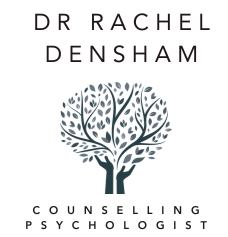WHAT CAN I HELP WITH?
I work with adults and young people across a broad range of mental health conditions including depression, anxiety (panic attacks, phobias, social anxiety, obsessive compulsive disorder), trauma and PTSD, grief, stress and burnout, low self-esteem, substance misuse, personality disorders, emotion regulation and relationship difficulties.
For most people, just as with physical health, mental health undulates over the course of our lifetimes. There is also a myriad of ways in which our mental health can become out of balance; but psychologists are trained to work with the cognitive, behavioural and emotional difficulties we experience to help alleviate a wide range of conditions.
DEPRESSION
An estimated 1 in 5 people in the UK will experience mental health difficulties at some stage in their life; and depression is very common. Depression is characterised by a constant low mood and loss of interest in activities. People can feel hopeless, unmotivated and hold negative and self-critical thoughts about themselves. Therapy can help you to identify what triggered your symptoms and how they impact on your life; and provide you with strategies to promote a more positive outlook and future.
ANXIETY
Many people experience anxiety from time to time, when sitting an exam or driving test, for example. However, for some people, the symptoms of anxiety can be overwhelming and enduring. They may experience physical symptoms (such as panic attacks, sweating, a racing heart rate or difficulty breathing) and racing thoughts and feelings of worry or fear that seem uncontrollable. Therapy can help you to develop strategies to manage these thoughts and feelings, making them less likely to impact on your day-to-day life.
TRAUMA
When people suffer a traumatic experience – a terrible event like an accident, sexual assault or a natural disaster, for example - this can give rise to unmanageable thoughts, feelings and behaviours, including unwanted and intrusive flashbacks, nightmares, overwhelming feelings of anger and other emotions, physical symptoms (such as headaches or nausea) and strained relationships. Therapy can help you better manage and control these symptoms so that the trauma memories become less unpredictable and overwhelming.
GRIEF
Grief affects most of us at some stage in our lives, but it is a subjective - and often lonely - experience that can be profoundly difficult to navigate, with many factors that can make the process even more challenging. Therapy provides a quiet space in which you can reflect on the memory of those who have passed away and untangle any associated thoughts and behaviours which may be making the process of healing more difficult.
WORK STRESS AND BURNOUT
Many of us devote considerable time to work, and in an ideal world, the work environment is both fulfilling and enjoyable. Sometimes, however, work can be a source of huge stress and pressure, which can have a hugely detrimental effect on both our professional – and personal - lives. Therapy can help you to better understand work stress and burnout, and assist in creating strategies to build a healthier work environment and a healthier and happier you.
ADDICTIONS
Addictions (to alcohol, drugs, gambling, sex; to name but a few) are often considered to be symptomatic of underlying, unresolved difficulties and related unmanageable emotions. Addictions can provide temporary relief by enabling you to avoid or repress such difficulties in the immediate term but, in the longer term, they often bring even more challenges thus increasing your burden. Therapy can help you to understand the reasons behind your addiction and to find healthier ways to manage the underlying difficulties.



